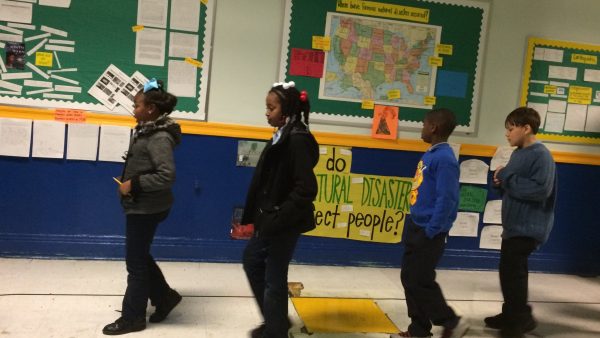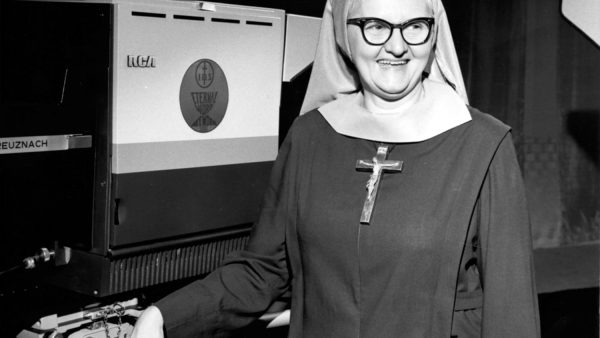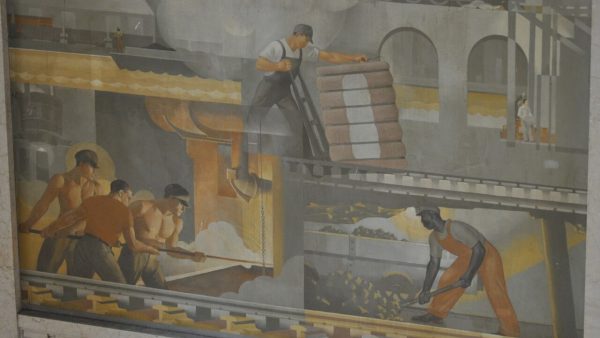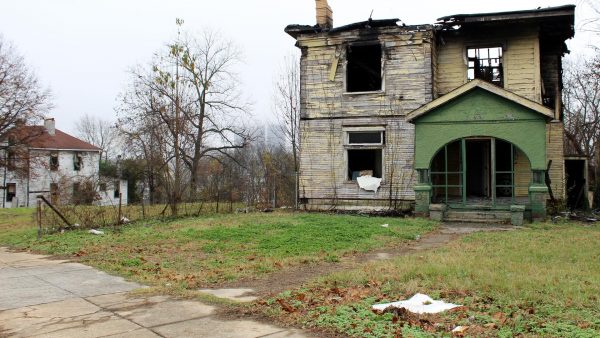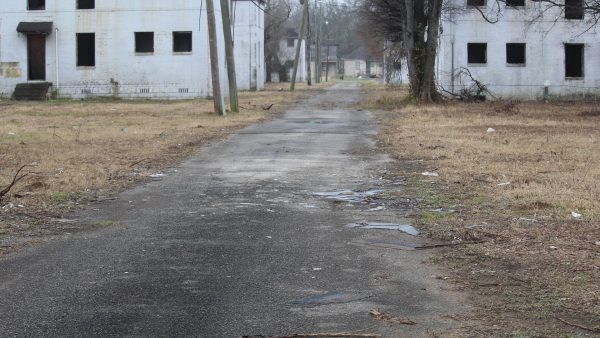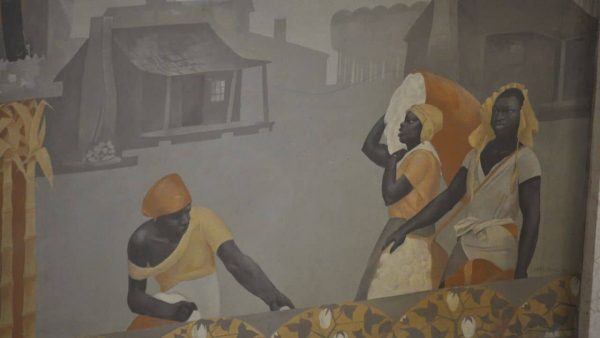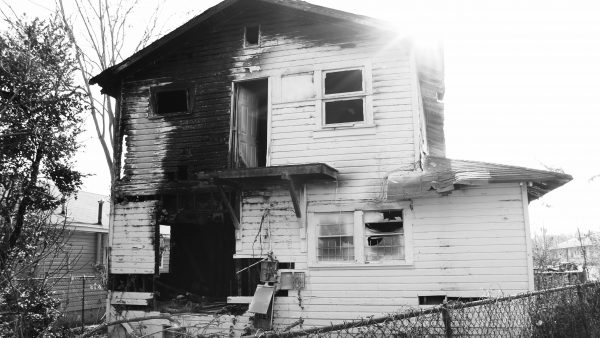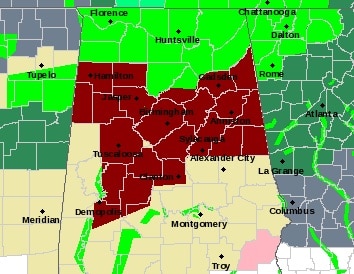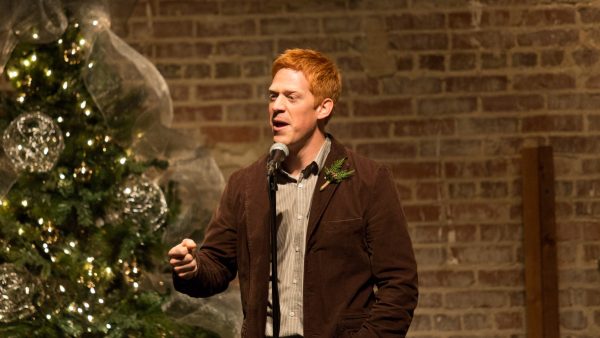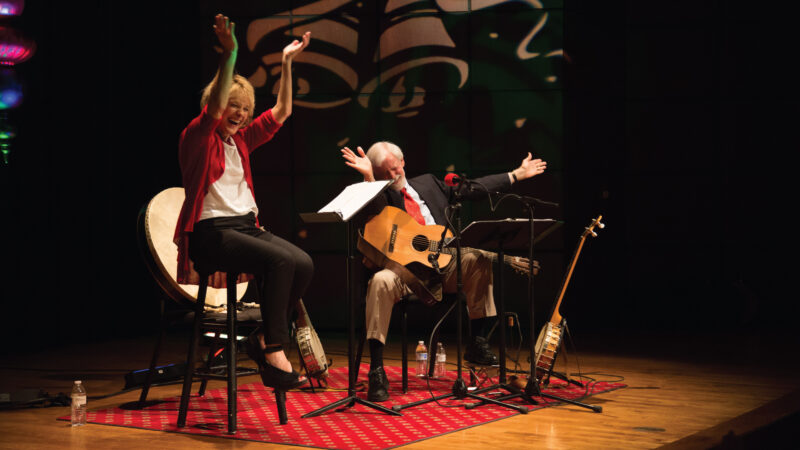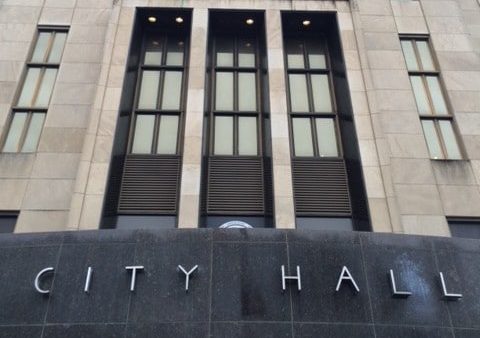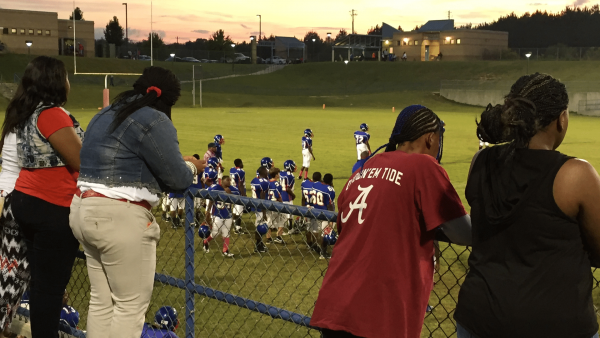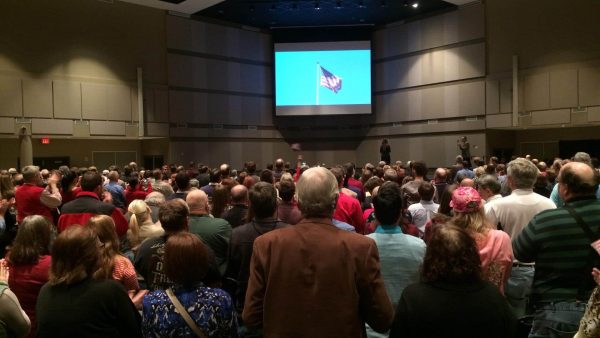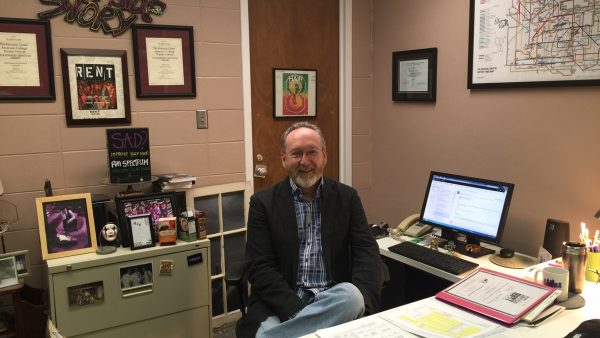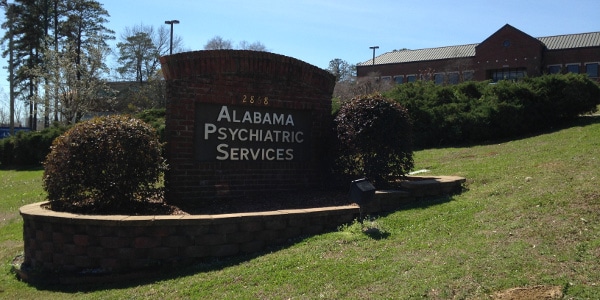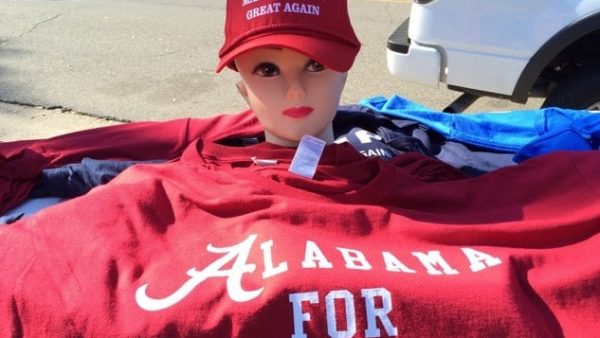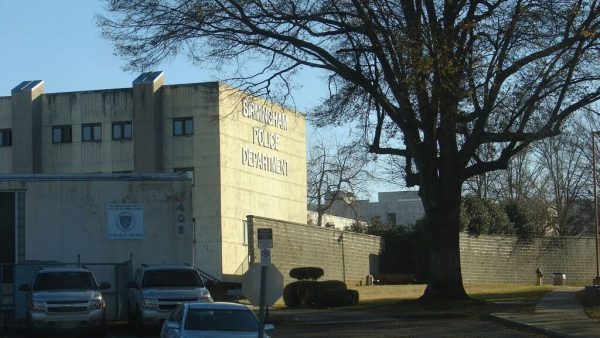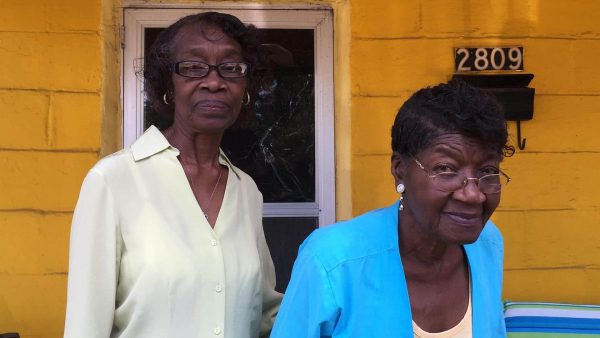Search Results for King
Sanders Tells Black Voters U.S. Must Confront ‘Institutional Racism’
It’s not just Iowa and New Hampshire where Vermont Senator Bernie Sanders will have to perform strongly to win the Democratic nomination. He’ll also need to do well on March 1st, this year’s Super Tuesday. That's when a dozen, mostly southern states hold presidential primaries and caucuses. And in many of those states, African-Americans are a key Democratic voting block. That’s one reason Sanders spent Monday night in Birmingham celebrating Martin Luther King Jr. Day.
Matters of Choice: New Orleans – The Choice Epicenter
Most Southern states allow for some form of school choice – magnet schools, vouchers for private schools, charter schools and more. How do these options affect learning, school demographics, and student success? We explore Matters of Choice beginning with this report from WWNO’s Mallory Falk in New Orleans.
Murrow Awards Application – Continuing Coverage of Alabama’s Same-Sex Marriage Battle
On January 23, 2015, a federal judge struck down Alabama’s ban on same-sex marriage. What followed was a political and legal battle that put Alabama at odds with the federal […]
Mother Angelica and the Eternal Word Television Network
Roman Catholics around the globe know the name Mother Angelica. She’s the founding matriarch of a small monastery in Irondale that grew into one of the largest religious media networks in the world, spanning 145 countries.
Correspondence That Shaped the Jefferson County Courthouse Murals
Since last Fall, the Jefferson County Commission has been debating what to do about the murals in the foyer of the county courthouse.
Losing History in One of Birmingham’s Oldest Neighborhoods
Birmingham city leaders are stepping up efforts to deal with dilapidated or abandoned properties. In communities overshadowed by blight, preservation is rarely an option, since resources are devoted to cleaning […]
A Visit to the Historic Lyric Theatre Before It Reopens This Thursday
An old Birmingham vaudeville theater starts a new life tomorrow. After two years and a more than $11 million renovation, the Lyric Fine Arts Theatre reopens downtown, exactly 102 years after its first performance. In its heyday, the theater hosted acts like The Marx Brothers and Will Rodgers. But decades of neglect left the theater in serious disrepair.
Fighting Blight: More Demolitions, Tougher Code Enforcement in 2016
It’s not unusual to drive along some inner city Birmingham streets and see well-maintained homes alongside burned structures and weed-infested lots. For years, residents have complained, and, if they were lucky, some lots and abandoned property were cleared. This year, with millions more in the budget and new laws with penalties for owners who don’t maintain their property, the city is hoping to stop blight in its tracks.
Committee Could Decide the Fate of the Jefferson County Courthouse Murals
Back in September, the Birmingham chapter of the National Association for the Advancement of Colored Peoples (NAACP) petitioned the Jefferson County Commission to remove two murals that currently hang in the entrance way to the county courthouse.
Birmingham’s Blight – Ravaged Inner City Communities Ready for Change
Birmingham has received national attention for its booming downtown revitalization and new development projects. But that's not the whole story. Less than a mile from downtown gems like Railroad Park and Regions Field, inner city neighborhoods struggle with decaying, abandoned homes and buildings.
State Auditor Says Governor’s Mansion Restoration “Poor Stewardship” of BP Funds
State Auditor Jim Zeigler is accusing Governor Robert Bentley of misusing oil spill money from BP. In a statement released today, Zeigler says a reporter and photographer from the New York Times are in Alabama looking into Bentley’s use of $1.8 million of BP money to restore the governor’s mansion at the Gulf in Baldwin County. The property has been abandoned since 1997 after suffering hurricane damage.
Birmingham Leaders Look to Curb Gun Violence
“We ought to have an increased presence in our neighborhoods. We need to be safe," says Councilman Steven Hoyt.
2016 Writing Murrow Award Application — Dan Carsen
This compilation includes three stories: Alabama’s Science Standards Get A Makeover 00:00 – 03:33 Alabama schools are getting new science standards for the first time in a decade. The state […]
Weather Service Crews to Survey Damage Saturday in Southwest Birmingham, Tuscaloosa
National Weather Service crews will assess damage Saturday morning in southwest Birmingham and east Tuscaloosa, locations where tornadoes possibly touched down Christmas Day as storms roared through the state.
Governor Bentley Declares State of Emergency Amid Flooding
Alabama Governor Robert Bentley has declared a state of emergency amid widespread flash flooding that follows several days of intense weather throughout the state.
Arc Stories: Holiday Edition
‘Tis The Season: Stories about the Holidays: A Christmas gift that completely changed the trajectory of on man’s life; the first time a little-girl gets a glimpse of the adult […]
Food and Fellowship: A Holiday Special from WBHM
Public Radio WBHM 90.3 FM is pleased to announce “Food and Fellowship: A Holiday Special from WBHM” featuring Birmingham’s own Dolores Hydock and Bobby Horton. WBHM partnered with Hydock and […]
Found Sound: The Alabama Theatre’s Mighty Wurlitzer Memorializes Buster Norris
A "found sound" story of organ recordings from the Alabama's Theatre's Mighty Wurlitzer Organ.
Birmingham City Council Back to Business as Usual After Bell-Lundy Altercation
Following last week’s fight between Mayor William Bell and Councilman Marcus Lundy, it was business as usual today in the chambers of the Birmingham City Council.
Sociologists’ Book Urges End of Sex Division in Sports
Can you imagine a world with no gender divisions in sports? University of Alabama at Birmingham sociologist Adrienne Milner can. Not only that — she wants to help make it […]
Ted Cruz Rallies Support in Alabama
Republican presidential hopeful Texas Senator Ted Cruz spoke to about 15-hundred people at the Trussville Civic Center yesterday. It’s part of big push through Southern states. Cruz told supporters that if elected, he’d abolish the IRS, launch an investigation into Planned Parenthood and move the American embassy in Israel to Jerusalem. That sat well with many in the crowd.
Former Bibb County Deputy Sheriff Convicted of Sexual Exploitation
A former Bibb County deputy sheriff has been convicted on six criminal charges stemming from allegations that he sexually exploited women he encountered during traffic stops. Alabama Attorney General Luther […]
Success More Than Jokes For Birmingham’s Roy Wood Jr. On Daily Show
For me, I think I have been very, very lucky to have a career up until this point where pretty much everything I have done, prepared me for what I am doing today on The Daily Show – from the acting, to the stand ups, even the prank phone calls. Roy Wood Jr.
Birmingham Mayor, Councilman Involved in Altercation
Details are still coming in, but Birmingham Mayor William Bell and City Councilman Marcus Lundy reportedly had a physical confrontation in a back room during the council's meeting this morning. Both men received medical treatment.
Birmingham-Southern Professor Michael Flowers Named 2015 Professor of the Year
For more than three decades, Michael Flowers has been teaching acting at Birmingham-Southern College. Flowers was recently named 2015 Alabama Professor of the Year by the Carnegie Foundation.
Lawsuit says Blue Cross to Blame for Closure of Mental Healthcare Provider
When Alabama Psychiatric Services closed in February, it sent shockwaves through the state’s mental health community. The company provided mental healthcare to about 28,000 people in locations throughout Alabama and employed more than 250 medical professionals. APS blamed the sudden closure on Blue Cross Blue Shield of Alabama, but a lawsuit filed in Jefferson County Circuit Court in May, and amended last month, offers more details on the specific allegations.
Where Birmingham’s Business Community Sends its Campaign Cash
Alabama has seen at least seven presidential candidates make stops in the state. Much of the credit for raising Alabama’s profile on the campaign trail is given to the fact the state banned together with other southern states to hold their primaries on March 1st. It's been dubbed the SEC primary. While candidates are seeing votes, they’re also seeking donors. That’s where we start in this week’s Magic City Marketplace.
Water Works Ends Longtime Ties With Lawyers Waldrep, Stewart and Kendrick
The Birmingham Water Works Board cut ties today with its longtime lawyers Waldrep, Stewart and Kendrick. The board’s vote ends a lucrative relationship valued at more than $ 1 million […]
Support For Trump in Alabama Still High Despite Anti-Muslim Rhetoric
From a pig’s head left outside a Philadelphia mosque this week to mounting threats in other parts of the US, the backlash against Muslims has intensified. In Alabama, the Ku Klux Klan is reportedly distributing fliers urging recruits to “fight the spread of Islam in our country.” This, along with Republican presidential hopeful Donald Trump’s heated rhetoric, has many of the state’s Muslims on edge.
Birmingham Sees Highest Homicide Rate Since 2008
Birmingham is approaching its ninetieth homicide for 2015, making this the city's deadliest year since 2008.
JeffCo Residents Left Paying Bill on Billion Dollar Utility Scandal
Another Alabama lawmaker uses social media as a political podium, this time encouraging his followers to buy more guns, a settlement regarding a major banking institution may have a lasting […]
Plaintiff in Landmark Civil Rights Montgomery Bus Case Shares Her Story
Most people know the story of Rosa Parks' resounding 'no' when she was asked to give up her seat on a Montgomery city bus. Sixty years ago this month, Parks's refusal prompted the Montgomery Bus boycott. But before her actions made history, there were other women and men were arrested for protesting segregation on public transportation.


